Tuesday, 26 May 2009 at 2:07 pm
The worst moment for the atheist is when he is really thankful and has nobody to thank.—Dante Gabriel Rossetti
Before I get down to the usual business, I want to respond to this idea because I’ve heard it several times in various places. I feel and express gratitude all the time. Since losing my belief in God, I haven’t been at a loss for people to thank.
I’m thankful to my parents for giving me life (and to their parents who gave them life, and so on).
I’m grateful for my wife who threw her lot in with me and risked her life to bear and raise children with me.
I’m grateful for all the innovators in science, technology, and the arts who have made my modern life of relative health, comfort, and ease possible.
I’m grateful for the groundskeepers who provide the uplifting environs where I work.
Even when I can’t find a person to thank for something (e.g. the warming light of the sun or the naked fact of our existence), I don’t miss being able to thank someone. I feel grateful—and incredibly fortunate—just the same.
This sense of gratitude without someone to thank may represent an improvement: I no longer suffer the temptation to imagine that I deserve the good things I enjoy by being faithful to God. And if I don’t deserve what I have, then all the more reason to share it with those who deserve it just as much as I.
With all due respect to Mr. Rossetti, he should have avoided offering witticisms about something that he apparently lacks experience of.
Oh, and by my count, that’s five things plus one.
Tags: art, Atheism, family, gratitude, marriage, science
Permalink
Monday, 18 May 2009 at 10:35 am
Today, I am thankful for…
- … having a good woman as my partner.
- … music and art. My life is infinitely richer because of them.
- … the time I’ve had recently with my daughters. I’ve been trying to focus more on the truly important things in life, and it has paid off with immediate returns.
- … homemade yogurt. It’s eerily simple to make. I feel like I’ve learned a secret art.
- … the philosophy of fire and motion.
Tags: art, family, gratitude, gtd, life, marriage, Music, productivity, yogurt
Permalink
Monday, 31 Dec 2007 at 11:42 am
Keys to Drawing has a very Zen lesson about the difference between seeing and knowing:
Seeing comes first. When rules conflict with seeing, forget them and draw what you see. This is what is meant by retaining an “innocent vision.” That is, to look at something as if you have never seen it before, and to be unclouded by assumptions about how a thing is supposed to look. The one simple rule to follow is: at each point of frustration or confusion, ask yourself, “What do I see?” (p. 17)
If you’ll excuse me for veering off the topic of drawing, this idea has been very important to me recently even though I didn’t think of it specifically as a conflict between knowing and seeing. One of the exercises illustrates the conflict. I first drew a green pepper from memory:
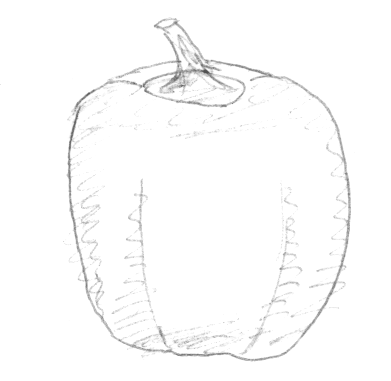
Then I drew a green pepper while looking at one (actually half of one) that I had available:
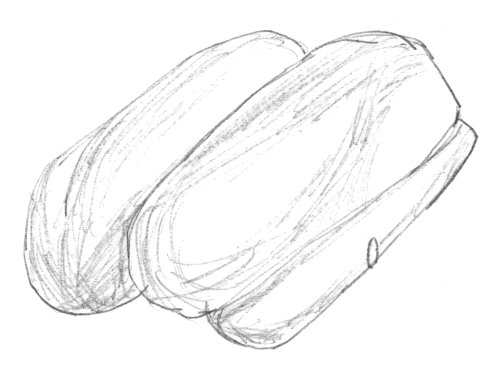
Our memories are only symbols. We walk around with preconceived notions that contain only a fraction of the information available in our first-hand experiences. Our memories are not our experiences. They are only derivative and shallow. Those prejudices based on memories get in the way of drawing because they separate us from what something really looks like. It is important to be able to suspend what we think we know in order to see clearly.
When I read this in the book, I immediately thought of my deconversion from Mormonism and theism. That process was driven in part by looking at my experiences with innocent eyes.
Anyway, back to drawing. This drawing is of my hand. The book said that if my drawing actually looked like a hand that I hadn’t done it right. Mission accomplished:
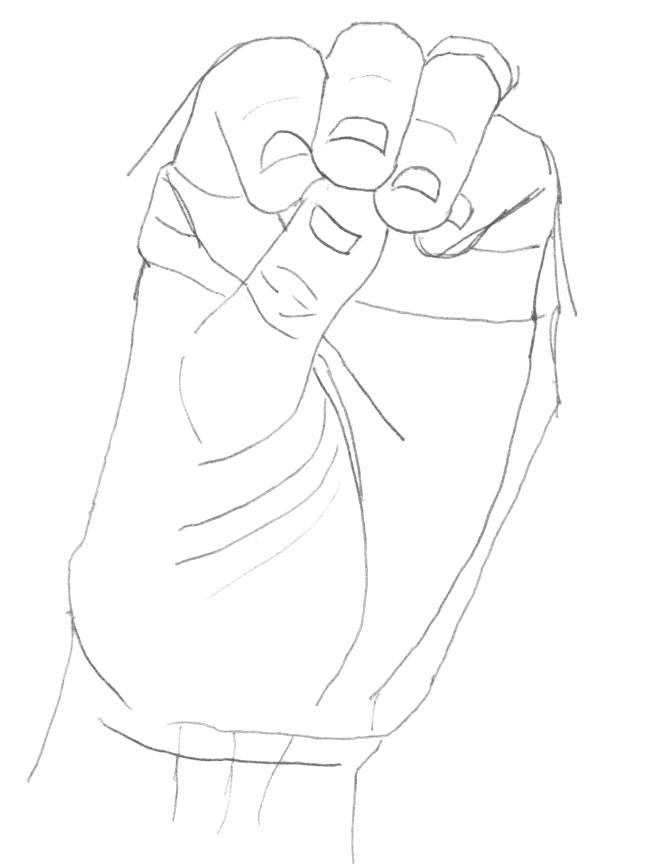
Then we have my eyes, or a crude approximation thereof. I really want to be able to draw human beings, but I have a long way to go:
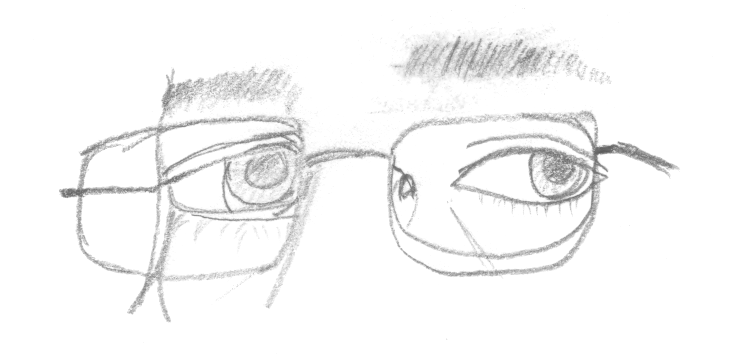
A bottle laying on the table:
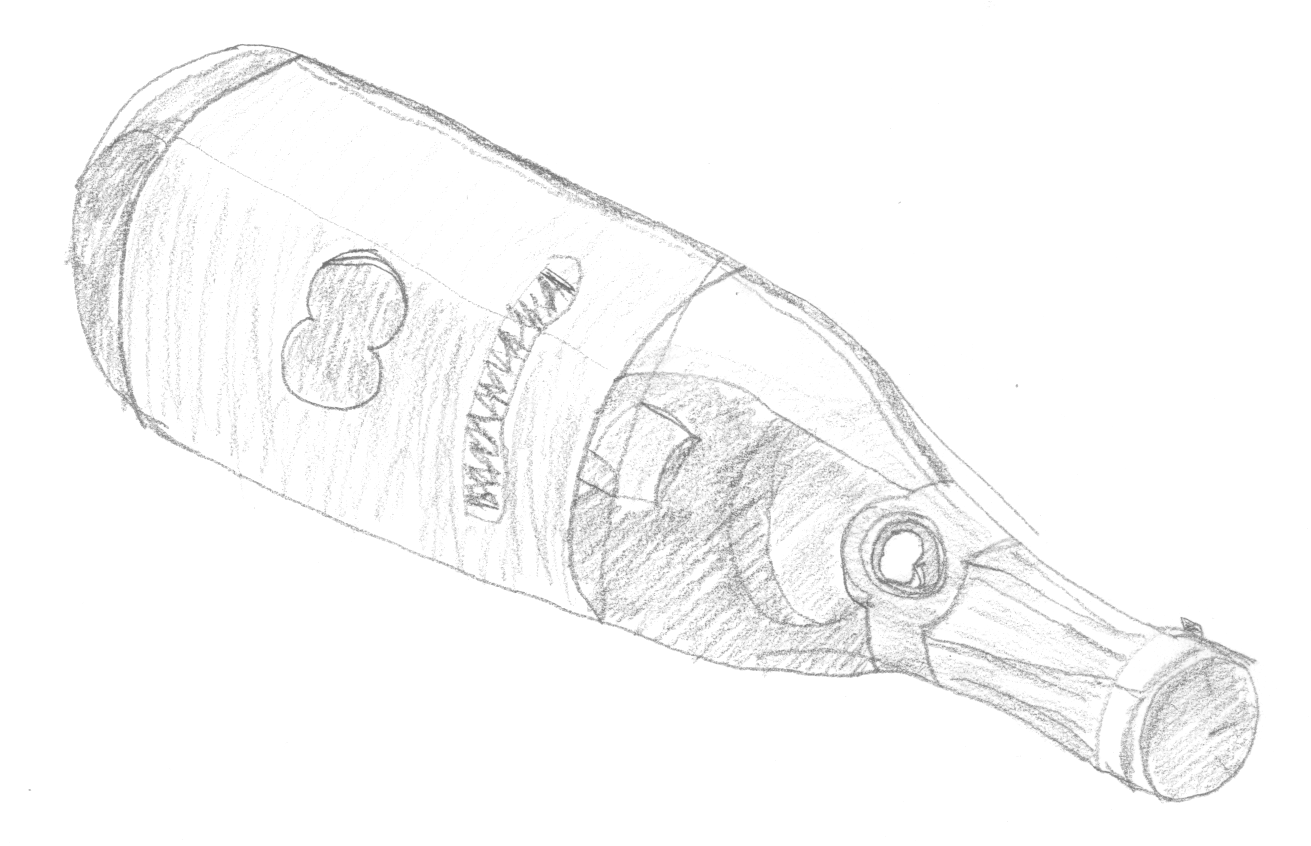
And an exercise bike:
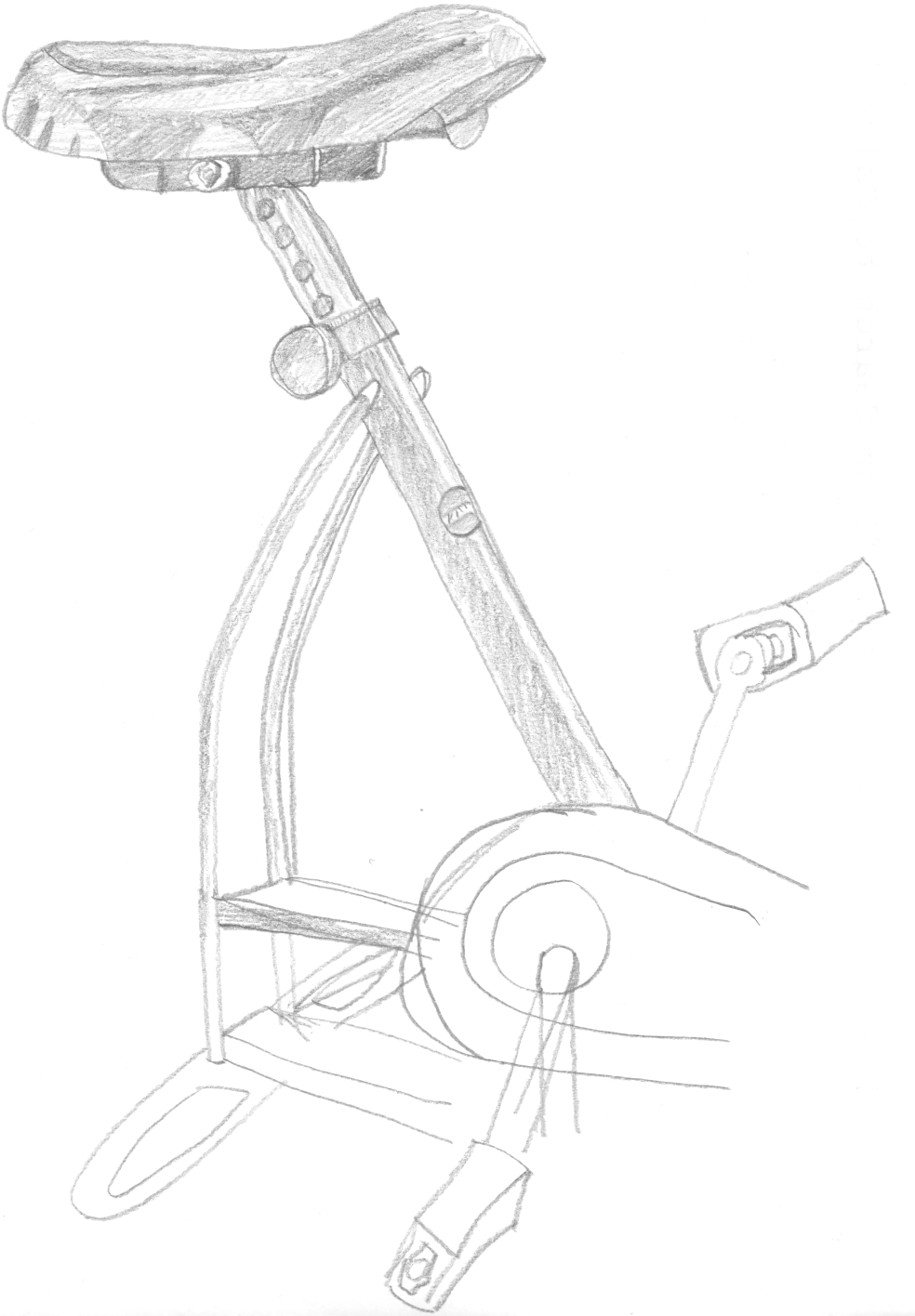
Tags: art, drawing, Keys to Drawing, knowledge, zen
Permalink





